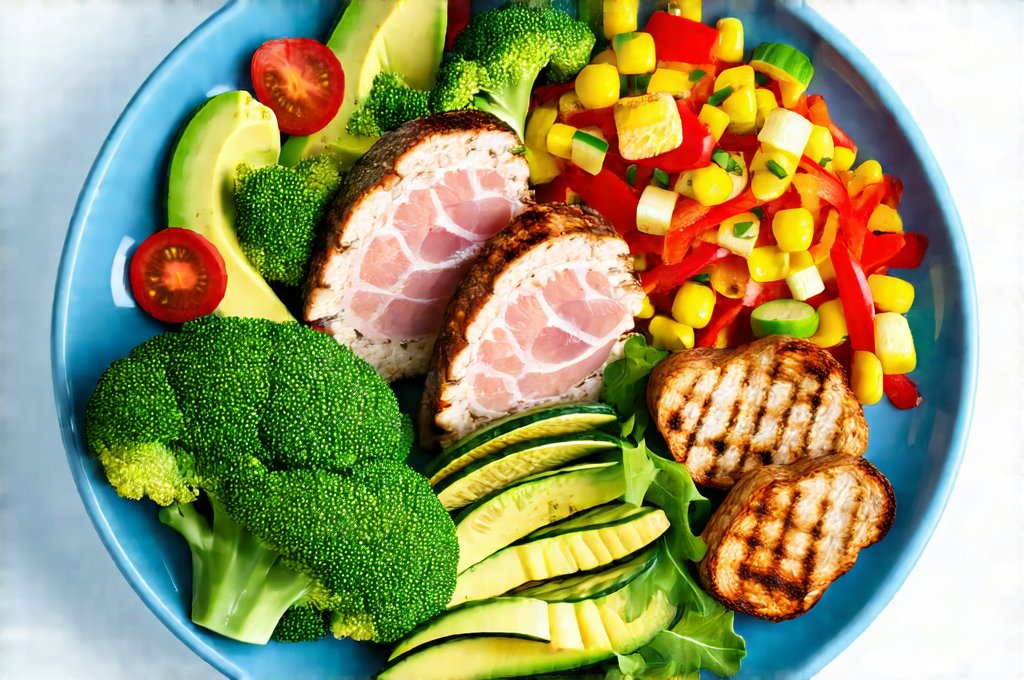Irritable Bowel Syndrome (IBS) can significantly impact daily life, often causing discomforting symptoms like bloating, gas, abdominal pain, constipation, and diarrhea. Many people find that dietary changes are a crucial part of managing their IBS, but navigating what to eat – and more importantly, what not to eat – can feel overwhelming. This isn’t about restrictive dieting; it’s about identifying your personal trigger foods and building a sustainable eating pattern that supports gut health and minimizes symptoms. The goal is finding a balance between nourishment and comfort, allowing you to enjoy food without fear of flare-ups.
This article will provide a simple, practical diet plan designed to be IBS-friendly. It’s important to remember everyone experiences IBS differently; what works for one person may not work for another. This plan serves as a starting point – a foundation upon which you can build your personalized approach. We’ll focus on easily accessible foods and straightforward meal ideas, emphasizing gradual changes rather than drastic overhauls. The key is to listen to your body and adjust accordingly, potentially working with a registered dietitian or healthcare professional for individualized guidance.
Understanding the Low-FODMAP Diet
The cornerstone of many IBS dietary approaches is the low-FODMAP diet. FODMAP stands for Fermentable Oligosaccharides, Disaccharides, Monosaccharides And Polyols – essentially, types of carbohydrates that are poorly absorbed in the small intestine. When these carbs reach the large intestine, they’re fermented by gut bacteria, producing gas and potentially triggering IBS symptoms. It sounds complex, but it’s manageable. The low-FODMAP diet isn’t intended to be a long-term solution for everyone; rather, it’s often used as an elimination diet to identify specific trigger foods.
The process typically involves three phases: elimination (where you strictly avoid high-FODMAP foods), reintroduction (where you systematically add individual FODMAP groups back into your diet to see how you react), and personalization (where you create a long-term eating plan based on what you’ve learned). It’s crucial to note that undertaking a low-FODMAP diet should ideally be done with the guidance of a healthcare professional, particularly a registered dietitian specializing in IBS. They can ensure you are meeting your nutritional needs while navigating the elimination and reintroduction phases safely and effectively.
Many resources online and apps available can help identify FODMAP levels in different foods, making it easier to plan meals. Some common high-FODMAP foods to be mindful of include: apples, pears, mangoes, onions, garlic, wheat, rye, milk (lactose), honey, and certain legumes. Conversely, many safe options exist, forming the basis of an IBS-friendly diet.
Building Your IBS-Friendly Meal Plan
A successful IBS meal plan isn’t about deprivation; it’s about clever substitutions and mindful choices. Focus on whole, unprocessed foods whenever possible. Lean proteins like chicken, fish, and tofu are generally well-tolerated. Rice, oats (in moderation), and quinoa offer good carbohydrate sources. Vegetables such as carrots, spinach, zucchini, and bell peppers are typically safe options. Fruits lower in FODMAPs include blueberries, strawberries, bananas (ripe but not overripe), and oranges.
Meal planning is incredibly helpful. Take some time each week to map out your meals and snacks, ensuring you have readily available IBS-friendly options. This prevents impulsive choices that might trigger symptoms. Remember hydration is key – aim for at least eight glasses of water per day. Small, frequent meals can also be easier on the digestive system than large, infrequent ones. Don’t hesitate to experiment with herbs and spices to add flavor without triggering discomfort; many are perfectly safe and can even aid digestion.
Breakfast Ideas
- Oatmeal made with lactose-free milk or almond milk, topped with blueberries and a sprinkle of chia seeds. Avoid adding high-FODMAP fruits like apples or pears.
- Scrambled eggs with spinach and a side of gluten-free toast. Ensure the toast is made from low FODMAP bread.
- Greek yogurt (lactose-free) with strawberries and a small handful of walnuts.
Consider portion sizes, even for healthy foods. Overeating can exacerbate IBS symptoms regardless of what you’re eating. Gradually introduce new foods to assess your tolerance levels. If you’ve recently started the low-FODMAP elimination phase, stick to very basic options initially until you begin reintroduction. Pay close attention to how different breakfast choices make you feel throughout the morning.
Lunch & Dinner Strategies
Lunch and dinner can follow a similar pattern – lean protein, complex carbohydrate, and low-FODMAP vegetables.
1. Grilled chicken salad with mixed greens (avoiding onions and garlic), carrots, cucumber, and a lemon vinaigrette dressing.
2. Baked salmon with roasted potatoes and steamed green beans.
3. Tofu stir-fry with rice noodles and low-FODMAP vegetables like bell peppers and bok choy.
When cooking, be mindful of ingredients in sauces and dressings. Many contain hidden FODMAPs. Making your own from scratch allows you to control what goes into them. For example, a simple dressing can be made with olive oil, lemon juice, and herbs. Avoid using garlic or onion powder in your preparations.
Snack Smartly
Snacks are important for maintaining stable blood sugar levels and preventing hunger pangs that might lead to impulsive eating choices. Some IBS-friendly snack options include:
– A small handful of almonds or walnuts.
– Rice cakes with a thin spread of peanut butter (check ingredients for added FODMAPs).
– Carrot sticks with lactose-free hummus.
– A banana (ripe but not overripe)
Avoid snacking on high-FODMAP foods like granola bars, fruit snacks, or crackers made from wheat. It’s helpful to pre-portion your snacks to avoid overeating and maintain control. Remember, even seemingly harmless snacks can trigger symptoms if they contain hidden FODMAPs.
It’s important to reiterate that this is a starting point. The most effective IBS diet plan will be one tailored to your individual needs and sensitivities. Working with a registered dietitian or healthcare provider is highly recommended to ensure you receive personalized guidance and support throughout the process.




